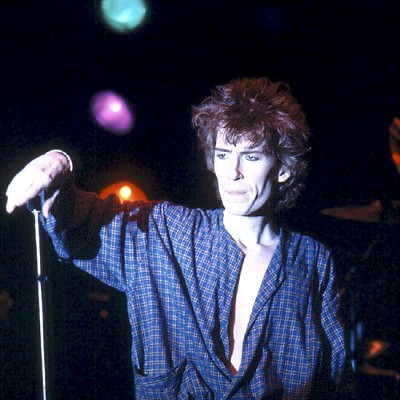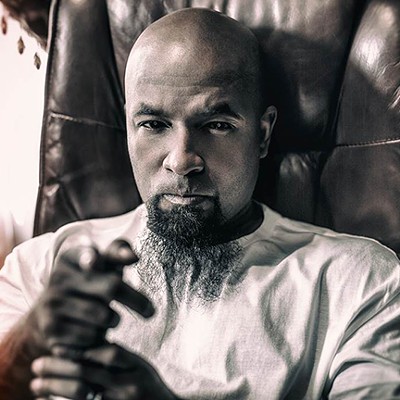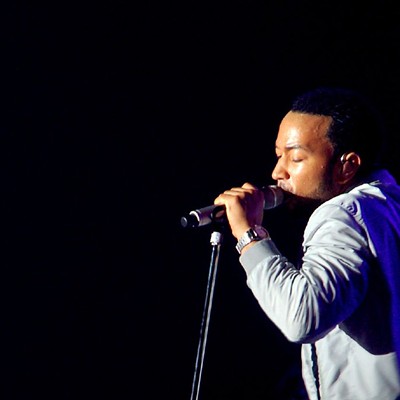The bad news about Kiss the Red Alarm, a trio from Phoenix, was that their strong opening set was woefully lacking in attendance. What many missed out on was chilly, baritone-voiced post-punk (e.g., Joy Division, Magazine) tempered with a more rock-based, unhinged backbeat—a concoction uncannily reminiscent of Tucson's Early Black, though Early Black's singer has black hair (an important distinction). The good news is that those who caught Kiss the Red Alarm's brief performance experienced a back-to-back barrage of powerful, passionate, and memorable songs. Here's to hoping they come back soon.
Speaking of comebacks, the Tucson-based Garboski has been making one of sorts recently, after a lengthy period of inactivity. Heretofore defined by the knotty but flowing rhythms of bassist Garth Bryson and drummer Josh Skibar, and singer/guitarist Beau Bowen's singular, and frankly, beautiful voice, the band has been teetering on the edge of greatness for years. The addition of guitarist Ian Philabaum proved to be the magic ingredient. Garboski sounded huge enough for a stadium, trading their former ambiguous ellipses for an urgent exclamation point. The group's first performance as a quartet (barring their set at last year's Great Cover-Up) displayed a newfound aggression and a palpable sense of revitalization. With Philabaum bridging the gap between Bryson's high register bass playing and Skibar's heavy thumps, each member's contributions were more noticeable, unlikely as that may seem. Garboski's older songs felt more complete while the new ones were just fantastic.
But the night belonged to Brass Hands, as well it should have: The quintet played in celebration of their brand new, limited-edition EP, Safe Places. And the performance was quite remarkable, with even several technical mishaps helping to illuminate an implicit theme in the band's music: humanity's relationship, particularly the struggle—to maintain control over, to remain constantly aware of its potential use for harm—with the modern world and its omnipresent technology. This is what made Brass Hands more than just great and challenging music. When Adam Kirchler screamed into his microphone, it was the scream documented in the 15th century British play The Summoning of Everyman, translated to the present, where a person's individuality is at stake in an abyss of obsolete data. As theater, it was brilliant, and the band provided the soundtrack with ambient alienation and brutal noise that lingered far longer than their set lasted.







